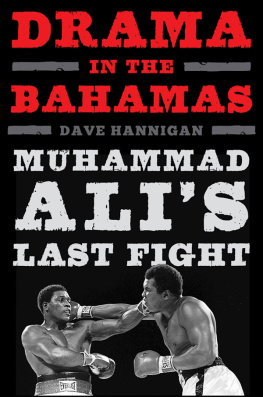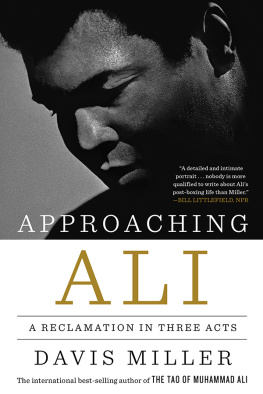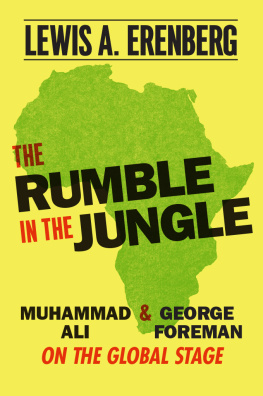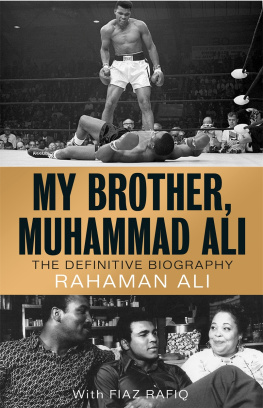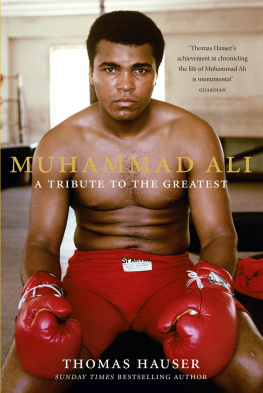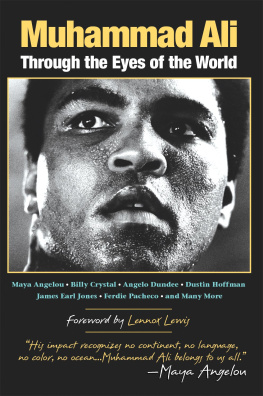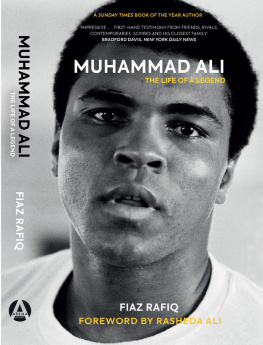Copyright 2016 by Dave Hannigan
All rights reserved. No part of this book may be reproduced in any manner without the express written consent of the publisher, except in the case of brief excerpts in critical reviews or articles. All inquiries should be addressed to Sports Publishing, 307 West 36th Street, 11th Floor, New York, NY 10018.
Sports Publishing books may be purchased in bulk at special discounts for sales promotion, corporate gifts, fund-raising, or educational purposes. Special editions can also be created to specifications. For details, contact the Special Sales Department, Sports Publishing, 307 West 36th Street, 11th Floor, New York, NY 10018 or .
Sports Publishing is a registered trademark of Skyhorse Publishing, Inc., a Delaware corporation.
Visit our website at www.sportspubbooks.com.
10 9 8 7 6 5 4 3 2 1
Library of Congress Cataloging-in-Publication Data is available on file.
Cover design by Tom Lau
Cover photo credit: Associated Press
ISBN: 987-1-61321-898-3
Ebook ISBN: 978-1-61321-899-0
Printed in the United States of America
Contents
To the memory of my mother, Theresa
Prologue
A S DEACON OF THE C HURCH of God in Norwich, Jamaica, eighty-four-year-old Canute Lambert hosted an early morning prayer meeting in the chapel every Saturday. Just after six a.m. on October 28, 2006, Lambert arrived at his place of worship to prepare for the arrival of his most devoted parishioners. Immediately, he noticed some sort of large object at the top of the steps to the entrance. At first, from a distance, he figured it was a garbage bag discarded there by somebody the previous night.
Beginning his ascent, however, Lambert recognized a trail of crimson tracking beneath his feet. Looking up, he was close enough to see what lay at the top of the church steps was not refuse but a body. It looked like a human being, he said later. When he bent over the corpse, even with four gaping wounds in its head, he knew immediately who it was. Lambert had known Trevor Berbick from the day he was born. He had watched him grow up, leave the island, become world famous and return, only to die in a pool of blood, a $100 bill lying beside him, yards from his home.
Within hours, news of Berbicks death was flashing up on websites and newspapers across the world. Almost every headline described the former heavyweight champion as the last man to fight Muhammad Ali. His calling card in history.
CHAPTER ONE
What Happens in Vegas
I cant represent the Muslims again until I quit sports. I spoke with the Honorable Elijah Muhammad, and he told me, If boxings in your blood, get it out. Ive got a few more things to do before I can get it out of my blood, about four more fights. First is the one with James Ellis down in Houston, and the last one will be with Frazier. Then I will be free to represent the Muslims again.
Muhammad Ali, June 22, 1971
B ORN ON W ESTMON I SLAND IN Iceland in 1944, Sig Rogich was five when his parents moved to America, eventually settling in Henderson, Nevada. For a financially struggling family it was a fortuitous time to arrive, as nearby Las Vegas was undergoing its first prolonged boom. Rogich worked his way through high school and college busing tables at the casinos and doing stints as a hotel bell-boy along the strip. Before turning thirty, he founded what became the states largest advertising agency, made his first million, and was such an influential player around town he once helped Frank Sinatra obtain a gambling license.
Walking through the doors of the state building in Las Vegas on the morning of December 29, 1980, Rogich cut a debonair figure, wearing his usual tailored Italian suit and expensive loafers, and carrying the title of chairman of the Nevada State Athletic Commission. For six years hed served on the five-member body charged with sanctioning boxing matches and licensing fighters. Since Vegas had essentially become the world capital of the sport in that time, this made the committee arguably the most powerful quintet in the game.
The reach of their impact and significance of their decision-making was hammered home to Rogich when he saw that more than fifty journalists had arrived for the meeting. He knew why they had come. He understood why editors had sent them from all over America. He realized this was no ordinary meeting. On this day he was tasked with presiding over a hearing to decide whether Muhammad Ali would ever climb through the ropes of a boxing ring again.
In the nearly three months that had passed since the thirty-eight-year-old former champion had been resoundingly defeated by Larry Holmes in an improvised arena in the car park of Caesars Palace, his fistic future had hung in the balance. It had been put there very firmly by Rogichs own comments to the press in the aftermath of that bout.
I believe we should retire a great champion for his safety and the integrity of the sport, said the chairman of the commission back in October. He demonstrated after the fight he should not be fighting again.
The troubling manner of Alis loss that night of October 2, 1980, the sheer lifelessness of his performance, and the disturbing sight of him absorbing so much savage punishment was, many would say belatedly, forcing the commissions hand. The jig, finally, appeared up.
Aint this something? said Ali, as he was corralled by reporters on the way into the hearing. One bad day on the job and they want to fire me.
If his quip made for characteristically good copy, the case against him was overwhelming. Aside from the damning evidence provided by the ten torturous rounds of the Holmes beatdown, a horror show only ended by trainer Angelo Dundee refusing to let him answer the bell for the eleventh, there were other serious issues to consider. Ali had used thyroid medication before the contest (to excess, he himself would admit), and taken painkillers immediately after it, crucially before the mandatory post-fight urinalysis had even been conducted.
There was then a surfeit of available reasons why the commission seemed bound to ensure the sixtieth fight of Alis pro career was also going to be his last. Indeed, recognizing the weakness of his position, and knowing the lay of the land from Rogichs public statements, Alis attorneys had tried to preempt the hearing. In a letter dated December 19, they offered to surrender his license in Nevada, a gesture that would make the adjudication moot and, more importantly for the boxers future prospects, not force other states to take their lead from the most influential commission in the sport and effectively retire him.
Rogich and his colleagues didnt buy this gambit. They were determined to wield their power to call a halt to perhaps the greatest career the sport had ever seen. They countered to his lawyers that Alis offer to surrender the license meant nothing if they refused to accept it. And, after a vote, thats exactly what they decided to do.
So then the hearing began in earnest. A fight film was produced of the Holmes bout, and Alis attorneysMichael Phenner, Michael Conway, and Niels Pearsonbegan arguing the case on behalf of their client.
Befitting a commission that usually didnt draw a big crowd, the meeting was held in a small room. However, so many people had shoehorned into it for this case that it soon began to get hot and clammy. As the proceedings dragged on, Ali grew visibly bored by the lawyerly back and forth. He could be seen doodling away on pieces of paperthat is, until he spotted a pair of kids in the public gallery.

